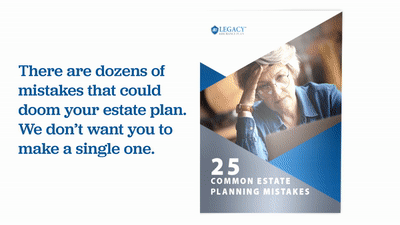When a grandmother recently wrote to advice columnist Annie Lane asking for guidance on distributing her inheritance among her children and grandchildren, she highlighted a challenge many families face: how to balance fairness with individual family circumstances when planning inheritance distributions. Her specific family situation – having both a daughter with children and a son who experienced the loss of twins and likely won't have children – exemplifies how emotional considerations often complicate what might otherwise seem like straightforward financial planning decisions. The grandmother’s family's story opens a broader discussion about estate planning strategies, including equal vs. equitable distribution, that address both financial and emotional aspects of providing an inheritance.
“I will be inheriting a modest sum of money and want to gift some of it to my two married children. I also want to gift some money to my daughter’s two young children to be used for future educational needs. My son and his wife don’t have children and will likely not have any in the future. They lost beautiful twins born prematurely many years ago. I want to be fair and compassionate with the distribution of money. If I gift the same amount to my two children and a smaller amount to our two grandchildren, do you think my son will feel the distribution is unfair? I realize the inheritance is mine to do with as I please, but I don’t want to hurt anyone’s feelings. We are all kind and level-headed people.”
What is a “fair and compassionate” distribution of an inheritance?

The concept of "fair and compassionate" distribution of an inheritance often touches on a deep tension between mathematical equality and emotional equity. Compassion in inheritance planning can mean acknowledging and responding to the unique circumstances of each family member. A truly fair and compassionate distribution typically requires looking beyond numbers.
Is an inheritance of equal shares fair?
Traditional wisdom often suggests dividing assets equally among children is the fairest strategy. However, this oversimplified solution fails to account for modern family dynamics, individual circumstances and the complex interplay between financial and emotional equity. Equal distribution doesn't always result in equitable outcomes, particularly when family members have different needs, challenges or family structures.
What is equal distribution in estate planning?
Equal distribution represents one of the most straightforward approaches to estate planning, where assets are divided into exactly equal portions among beneficiaries. So, if you have three children and an estate worth $900,000, each child would receive exactly $300,000. This mathematical equality applies not just to money, but to all assets in the estate. For property or items that can't be physically divided, their monetary value would be factored into the equal division.
The concept extends beyond just the mathematical division. Equal distribution often reflects a philosophical approach to inheritance that values absolute fairness through identical treatment. Parents who choose equal distribution frequently do so because they want to demonstrate that they value all their children equally and wish to avoid any appearance of favoritism.
Understanding how equal distribution works requires looking at several key aspects. First, it typically involves a thorough inventory and valuation of all estate assets. Since everything must be divided equally, knowing the exact value of each asset becomes crucial. This includes not just obvious assets like bank accounts and real estate, but also personal property, investments and even sentimental items that have monetary value.
The process becomes more complex when dealing with assets that can't be easily divided. For example, if the estate includes a family home worth $300,000 and there are three heirs, several approaches might be used to maintain equality:
- The home could be sold and the proceeds divided equally.
- One heir could buy out the others' shares.
- The heirs could share ownership of the property.
- Other assets could be used to offset the home's value.
Equal distribution also has important implications for estate administration. Because it requires such precise division, it often necessitates careful record-keeping and may require professional appraisals to ensure true equality. This can affect both the time and cost involved in settling the estate.

Equal distribution also has important implications for estate administration. Because it requires such precise division, it often necessitates careful record-keeping and may require professional appraisals to ensure true equality. This can affect both the time and cost involved in settling the estate.
- A house worth $400,000.
- Investment accounts totaling $300,000.
- Personal property worth $100,000.
- Life insurance proceeds of $200,000.
With three children as heirs, each would be entitled to exactly $333,333.33 worth of these combined assets. The executor would need to figure out how to divide or liquidate these assets to achieve this exact equality.
Equal distribution offers several advantages. It can help prevent disputes among heirs since there's no room for argument about fairness when everything is divided exactly equally. It also simplifies the estate planning process somewhat, as it doesn't require justifying different distributions to different heirs.
What is equitable distribution in estate planning?

Equitable distribution is a legal principle used in estate planning (and divorce law) that focuses on dividing property fairly, though not necessarily equally. In estate planning specifically, equitable distribution guides how assets are divided among heirs in a way that's considered fair given each person's circumstances. This differs from equal distribution where everything would be split into exact equal portions. This approach considers factors such as:
- Financial need. Some family members might have greater financial challenges or responsibilities than others.
- Family size. The presence or absence of children can affect how inheritance impacts different branches of the family tree.
- Previous gifts. Some family members might have received significant support during the giver's lifetime, such as help with education or home purchases.
- Life circumstances. Major life events or challenges, such as disability, health conditions, age, loss of children or inability to have children, might warrant special consideration.
To illustrate this concept, imagine a parent with three adult children: one who's financially successful, another who has significant medical expenses, and a third who helped care for the parent in their later years. Under equitable distribution, the parent might leave a larger portion to the child with medical needs or the one who provided care, recognizing their different circumstances and contributions.
What are some other strategies for distributing assets to heirs?
The generation-skipping option
One approach involves creating separate pools of assets: one for children and another for grandchildren. This strategy allows for equal treatment of children while simultaneously addressing educational or other needs of grandchildren. For instance, a grandmother might:
- Set aside a specific portion of the inheritance for her children, divided equally.
- Create a separate educational trust for grandchildren.
- Establish a family legacy fund that benefits all descendants equally.
This approach acknowledges both direct descendants and future generations while maintaining clear boundaries between different types of gifts.
The family trust solution
A revocable living trust to benefit your family can provide flexibility in distribution while maintaining sensitivity to changing circumstances. Trust structures offer several advantages:
- Timing control. Distributions can be staged over time rather than given as lump sums.
- Conditional support. Funds can be designated for specific purposes like education or health care.
- Adaptability. Trust terms can accommodate future changes in family circumstances.
For instance, in the grandmother's case, a family trust might allow her son to benefit from funds originally intended for her late grandchildren's education by redirecting those resources to other meaningful purposes in his branch of the family.
The lifetime gifting strategy
Sometimes the best approach involves making gifts during the giver's lifetime rather than waiting until after death. This strategy offers several benefits, including an immediate impact for givers who can witness how their gifts benefit family members. There also are potential tax advantages, such as annual gift tax exclusions.
Communicating your inheritance plan with family

One of the most challenging aspects of creating a fair inheritance plan is communicating your decisions to family members. While the financial and legal structures are important, how and when you share your plans can significantly impact family harmony and the successful implementation of your wishes.
The timing of these conversations matters greatly. Having discussions while you're still healthy and able to explain your reasoning allows family members to understand your thought process and gives them time to process and accept your decisions. It also provides opportunities to address concerns and make adjustments if needed.
Consider organizing a family meeting with these key elements:
- Share your values and hopes for the family's future, not just the financial details.
- Explain the reasoning behind your distribution choices, especially if you're choosing equitable rather than equal distribution.
- Listen to family members' perspectives and acknowledge their feelings.
- Utilize professional legal assistance to help explain and provide estate planning services.
- Document the conversation and provide written summaries to prevent future misunderstandings.
Sometimes, multiple conversations over time work better than a single meeting. This approach gives family members time to process information and return with thoughtful questions. It's particularly helpful when dealing with complex family situations like the grandmother's case, where emotional sensitivities require careful handling.
If certain decisions might be particularly sensitive – such as unequal distributions or special provisions for specific family members – consider having both group and individual conversations. This allows for more open dialogue about personal circumstances while maintaining family unity.
Conclusion
Creating a fair inheritance plan requires balancing financial pragmatism with emotional intelligence. While traditional equal distribution might seem like the simplest solution, modern family dynamics often call for more nuanced approaches. Whether through equitable distribution, generation-skipping arrangements, family trusts, lifetime gifting or other strategies, the key is to align your plan with both your values and your family's unique circumstances.
Remember that fairness doesn't always mean equality, and compassion sometimes requires acknowledging and accommodating different family situations. By carefully considering various distribution strategies, communicating openly with family members and remaining sensitive to emotional needs, you can create an inheritance plan that preserves both family wealth and family harmony.
The most successful inheritance plans are those that not only distribute assets effectively but also strengthen family bonds and support each member's journey through life. When approached thoughtfully, with both practical wisdom and emotional awareness, inheritance planning can become an opportunity to express care for your family while creating a lasting legacy that reflects your values and hopes for future generations.



